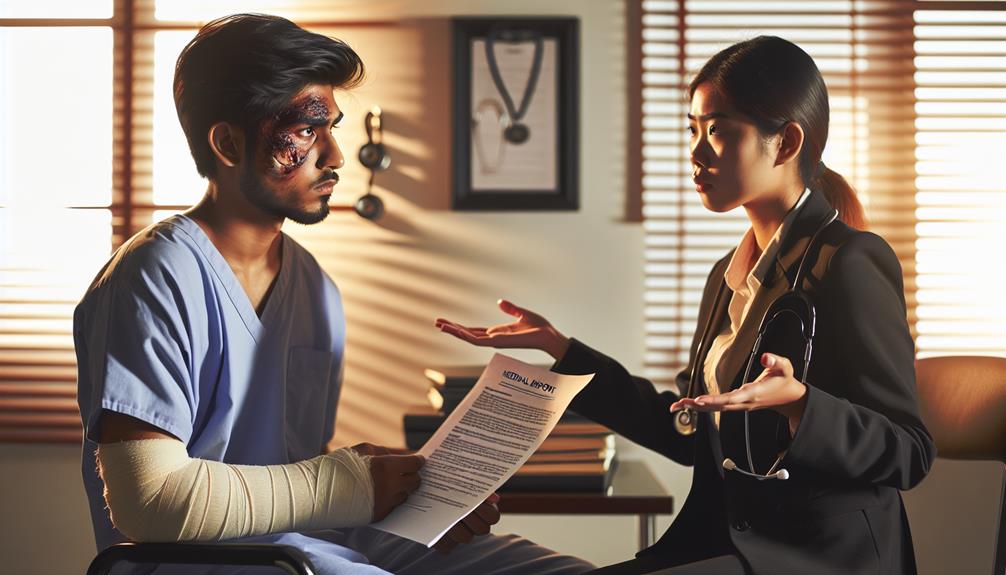After an injury, you might feel overwhelmed, but knowing the right steps to take can greatly impact your recovery and future. First, seeking immediate medical attention is essential to safeguard your Health and document your injuries. Then, carefully documenting the incident—including photos and witness information—will support your case later. Finally, consulting a personal injury lawyer can help you navigate the complexities of the legal system and secure the compensation you deserve. But what pitfalls should you avoid along the way? Understanding these nuances can make all the difference in your journey toward justice.

Seek Medical Attention
Immediately seeking medical attention is vital after an injury, as prompt assessment can greatly impact your recovery and prevent further complications. You might think you can wait it out, but ignoring symptoms could lead to more severe issues down the line. Even minor injuries can escalate without proper care, so don’t underestimate the importance of getting checked out.
When you seek medical help right away, healthcare professionals can accurately diagnose your condition and provide the necessary treatment. This not only aids your recovery but also creates a documented medical record, which is significant if you decide to pursue a personal injury claim later. insurance companies often scrutinize medical documentation, so having a thorough assessment can bolster your case.
Furthermore, early intervention can minimize pain and prevent prolonged suffering. If you’re experiencing persistent discomfort or unusual symptoms, don’t hesitate to voice your concerns to your healthcare provider. They’re equipped to help you understand your injury and guide your recovery process.
Document the Incident
After receiving medical attention, it’s important to document the incident thoroughly, as this evidence can greatly influence the outcome of any potential claims or legal actions.
Start by gathering all relevant information, including the date, time, and location of the incident. Write down a detailed account of what happened, noting any contributing factors that led to your injury.
Next, take photographs of the scene, injuries, and any property damage. Visual evidence can be incredibly powerful in substantiating your claims. If there were witnesses, collect their contact information and ask for their statements. Their accounts can provide additional support for your case.
Don’t forget to keep all medical records, bills, and any correspondence related to your injury. These documents serve as vital proof of your medical treatment and expenses.
Consult a Personal Injury Lawyer
Seeking the expertise of a personal injury lawyer can greatly enhance your chances of receiving fair compensation for your injuries. You might think you can handle everything yourself, but maneuvering the legal system can be overwhelming and complex. A seasoned lawyer knows the ins and outs of personal injury law and can help you understand your rights and options.
When you consult a lawyer, they’ll assess the specifics of your case, gathering evidence and determining the best course of action. They’ll negotiate with insurance companies on your behalf, ensuring you don’t settle for less than what you deserve. Without professional guidance, you risk accepting a lowball offer that doesn’t account for your medical bills, lost wages, and emotional distress.
Moreover, having a lawyer on your side sends a strong message to the opposing party. They’re less likely to underestimate your claim when they know you have legal representation.
Moving Forward with Confidence
After an injury, taking the right steps is crucial for protecting your rights and securing the compensation you deserve. Consulting with a personal injury lawyer can provide you with the guidance and support needed during this challenging time. For a more detailed discussion on the necessary actions to take after an injury and the benefits of professional legal assistance, we invite you to read our detailed article at Personal Injury Lawyer. This resource will offer comprehensive advice and help you navigate the complexities of your legal journey.